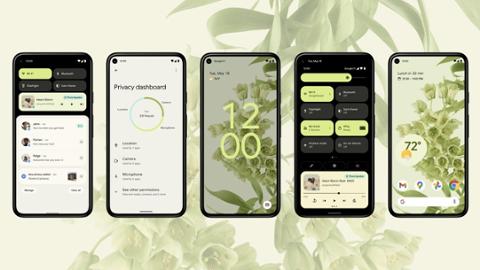Google Android dominates much of the mobile world. With the operating system running on so many phones globally, and so many apps available in Google Play, it’s extremely difficult for an individual Android app to stand out. That makes the role of Android developer all the more critical: Amidst this rapidly evolving, wildly fragmented ecosystem, a good developer can build an app that’s secure, efficient, and beautiful.
Typical Android Developer Job Posting
A “typical” Android developer job posting will ask candidates for experience in building and maintaining Android apps. Virtually all will want the candidate to have experience with Kotlin and Java, the languages underpinning the operating system; in addition, most postings will claim a need for app-building experience.
On a bullet-point level, a posting might ask for any of the following in terms of responsibilities and qualifications:
- [X] years’ development experience in Android.
- At least a BA in Computer Science, Engineering, or related field.
- Strong communication skills and team-working abilities.
- Knowledge of object-oriented concepts and design patterns.
- Knowledge of Android APIs and Flutter.
- Experience working with web services, JSON, and XML.
- Unit-testing experience.
For more senior roles, employers will often ask for candidates who have shipped multiple Android applications and have lots of experience interacting with clients, leadership, and teams. They'll also want candidates to have a firm grasp of Google's latest Android privacy policies and tools.
Education/Training/Certification
Google offers an Associate Android Developer certification. Designed to test the skills of an entry-level Android developer, the certification requires applicants successfully complete a coding project and an exit interview. Completing the certification requires that developers use (and therefore have familiarity with) the latest version of Android Studio, the integrated development environment (IDE) for Android.
Since Java is one of the core languages of Android development, some developers may find it useful to secure Java certification from Oracle, although many potential employers are likely more interested in your proficiency with the language than whether you have formal Java certification.
There’s also training for Kotlin, the other core Android development language, that’s been certified by JetBrains (which created the language in 2011). Some companies may engage with these partners to train developers in Kotlin; but again, many employers will care more about your coding proficiency than the specifics of how you were trained. A self-taught Kotlin/Java developer with a ton of notable Android apps will likely have an easier time landing a gig than someone with certifications and coursework who’s slower at coding.
Typical Android Developer Interview
Any employer on the hunt for a good Android developer will want to know whether the candidate can program in Java and Kotlin. For those new to Android development, deciding how to prioritize the learning of these languages (and you should learn both) is a critical issue.
Although Kotlin’s profile has risen steadily over the past few years, a Dice survey of Android developers showed that the vast majority (85 percent, to be exact) still prefer Java over Kotlin.
But Kotlin isn’t just for Android. According to a 2019 survey by JetBrains, some 62 percent of developers say they use it to build mobile apps; but 41 percent use it for backend projects, 29 percent for libraries, and 22 percent for tooling. In other words, Kotlin is worth learning simply because it offers a lot of possibilities to developers, even if building Android apps isn’t their full-time job. (The percentages add up beyond 100 percent because developers could choose more than one option).
You should probably learn Java before plunging into Kotlin, although it seems that Kotlin will serve your longer-term needs better.
In addition to evaluating whether you know Kotlin and Java (which may involve a programming or whiteboard test of some sort), your prospective employer will also want to know about your previous projects. Make sure you can describe what you’ve worked on and the challenges you’ve overcome; you should also take pains to emphasize your familiarity with the latest version of Android, as well as the issues that crop up when dealing with a highly fragmented ecosystem.
What to Include on an Android Developer Résumé
Your resume and cover letter should include links to your apps, code repositories, and other evidence of your coding mastery. Also, if your previous Android apps had a demonstrable impact on a company—or even did really well in the Google Play rankings—you should highlight that fact in order to underline your effectiveness as a developer.
Sign Up Today
Membership has its benefits. Sign up for a free Dice profile, add your resume, discover great career insights and set your tech career in motion. Register now


